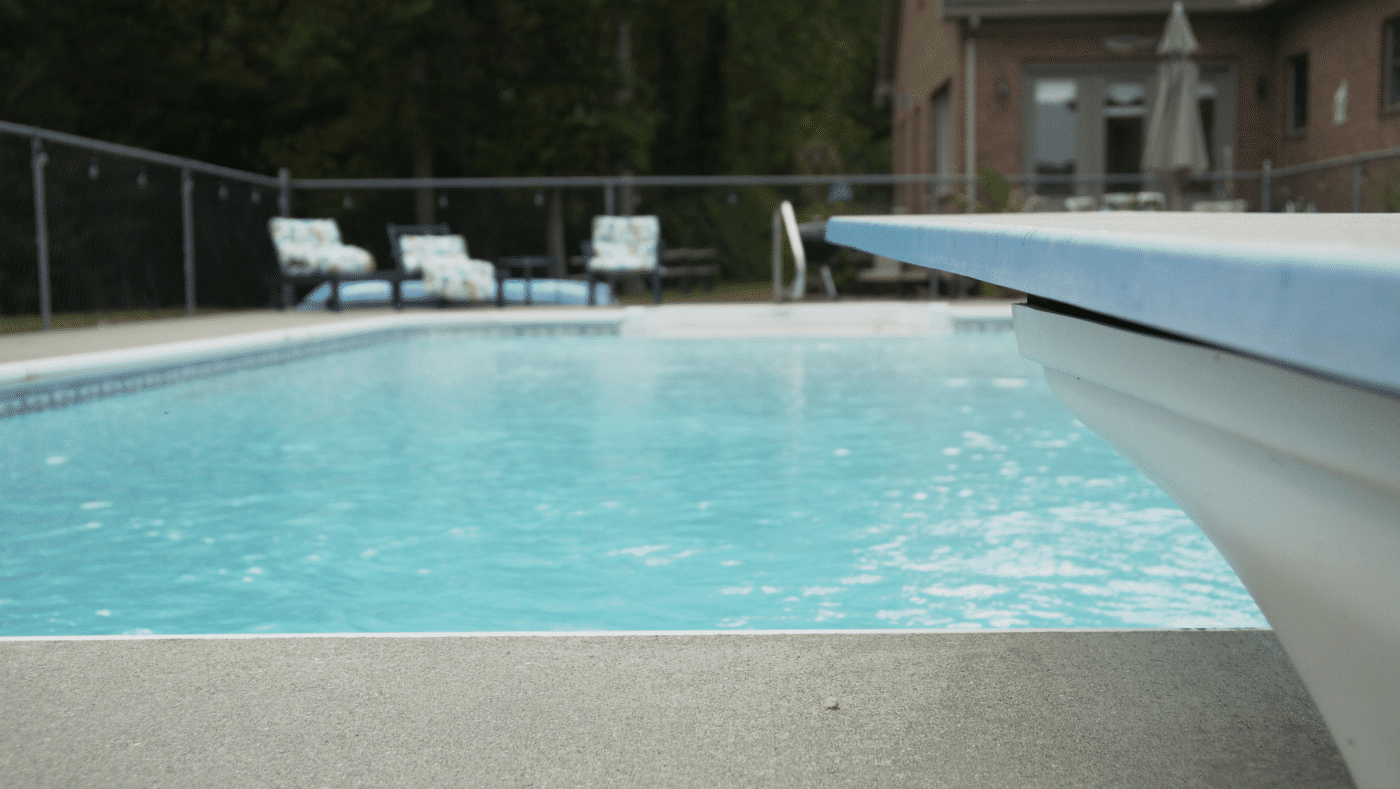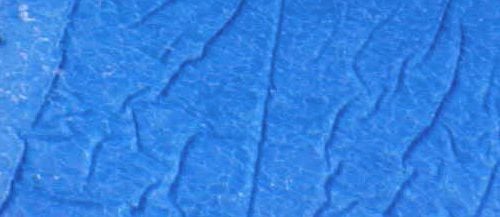
Topics:
Updated: August 27th, 2024 | Published: October 23rd, 2017
4 min read
By Holly Jender

Liner wrinkles can be part of owning a vinyl liner pool. A liner is very thin, and when it’s initially installed, it’s not uncommon to see some wrinkles in the pool during the initial filling process. Wrinkles can also develop slowly over time, which is unfortunately true for both pools and people.

Wrinkles are separate from divots, dents, and bumps that can also form under vinyl liners, but the issues could occur together.
Liner wrinkles don’t usually cause serious problems, but they can be difficult to remove. Your best option is to catch them as the pool is being filled and keep your pool water in good condition—but if they do show up later, we’re here to help you clear them up.
Wrinkles can show up for a variety of reasons.
The most common reason is heavy rainfall or otherwise excessive water in the soil around the pool. Having a high water table can cause the liner to lift from the floor of the pool like a balloon. When the groundwater recedes, the liner doesn’t go back to the same position as before, so wrinkles develop.
Incorrect water chemistry can cause it too. Low pH can cause the liner to stretch, which leads to wrinkles. (Poor water chemistry causes plenty of other issues as well. It’s a lose-lose situation.)
If you contract reputable builders to construct your pool, you should operate under the assumption that they want to provide you with a good experience and a quality product. You’re both working toward the same goal. They don’t benefit from an upset customer. Assume the best of them and know what you need to contribute to make this project a success.
If you read your workmanship warranty carefully, you may find that wrinkles are not covered. In this case, if the builder does install your liner incorrectly and you find wrinkles, they may not be obligated to remove them.
When filling the pool, it's okay to monitor the liner for wrinkles and point them out to the builder. They may not appreciate this, but better safe than sorry. If a builder ever instructs you to remove wrinkles in a pool they are installing, you've likely picked the wrong company. Consequently, you may want to ask if this is standard practice before signing an agreement.
When the builder presents paperwork for you to sign off on the liner installation, read the paperwork, discuss it, and know that you’re satisfied with the job before you sign off on it.
To prevent high groundwater, install a dewatering system around the pool. You can do this both during and after construction.
Maintain your water chemistry. With proper maintenance, you may be able to avoid wrinkles in addition to scaling, cloudy water, eye and skin irritation, faded and thinned liner, calcium deposits, algae...Look, you could probably solve a rubic's cube easily. Just take the time to test your pool water at least every week, if not every day, and adjust as needed.
One temporary solution that may help with small wrinkles is to use a toilet plunger. (I suggest a new, clean one. Just in case.) This is time-consuming but less expensive than a full drain and refill.
For large pool wrinkles, it may be necessary to remove water from the pool. You should seek a professional to perform this task. You can expect to see them perform the following:
Caution: after a vinyl liner has been installed for three or more years, it rapidly shrinks and becomes brittle once water is removed. We’ve seen cases where people have drained a pool to remove wrinkles and the liner split and became so brittle you could crack it like glass.
If you’re going to attempt to remove wrinkles from an older above-ground vinyl liner, we suggest doing it very quickly at temperatures above 70°F (21°C). The warm temperature helps soften the liner. Drain the water, get the wrinkles out, and refill the pool as quickly as possible.
Liners typically need to be replaced every 5–9 years, so if yours is getting old, it may be a more efficient use of time and resources to replace the whole liner.
If you’re in the market for a new inground pool and the idea of fighting wrinkles and other liner issues sounds like more trouble than it’s worth, maybe you should consider a fiberglass pool as an alternative.
Fiberglass pool shells are incredibly durable, look great, and have no liner to maintain. If you’d like to learn more, our free ebook provides an in-depth comparison of fiberglass, vinyl liner, and concrete pools.
Take a look at our catalog of pool models today, and browse our gallery to see what we can do for your swimming pool project.
Wondering how much that fiberglass pool might cost? Contact us to request pricing, and try out our fiberglass pool pricing calculator below for a fast estimate:

Want to see about how much that cost will be with all your favorite pool accessories?
Use our Design and Price Tool to walk through your options and approximate price!
As always, if you have any questions, feel free to leave them in the comments below.
How Long Do Vinyl Liner Pools Last?
What Is the Life Expectancy of a Fiberglass Pool?
A Guide to Inground Swimming Pool Size, Costs, and Prices: Everything You Should Know
Editor's note: This article was originally written by Holly Jender and was updated on August 27 2024, with current information. River Pools is a brand of inground fiberglass pools produced in a manufacturing facility in Fortville, IN. While our expertise is in manufacturing fiberglass pools, we have access to a network of installers with expertise relating to project design, installation, and pool service. We often tap into this knowledge base and share information freely with homeowners, just like you, considering installing a swimming pool in your backyard.
Topics:
River Pools® manufactures fiberglass pool shells and does not install pools. Pools are installed by locally owned and operated dealers and franchisees. The relationship between the dealers and franchisees to River Pools® is that of an independent contractor. River Pools Franchising LLC (Franchising) provides independently owned and operated River Pool franchisees with the right to market the River Pools brand of pool shells as a franchisee. Franchising does not manufacture pool shells. Due to the unprecedented and historic growth of the River Pools brand, this website contains an abundance of information that has been created over the last decade. Some of the content on this site may reflect prices, perspectives, processes, entities, and names that were relevant at the time but may not be as relevant today.
Consumers should consult their local installer (independent dealer or franchisee) for the most accurate and updated information based on the unique conditions of their property. Consumers should verify specifications with the installing dealer rather than relying on the information on this website, which is not intended to be a final specification.